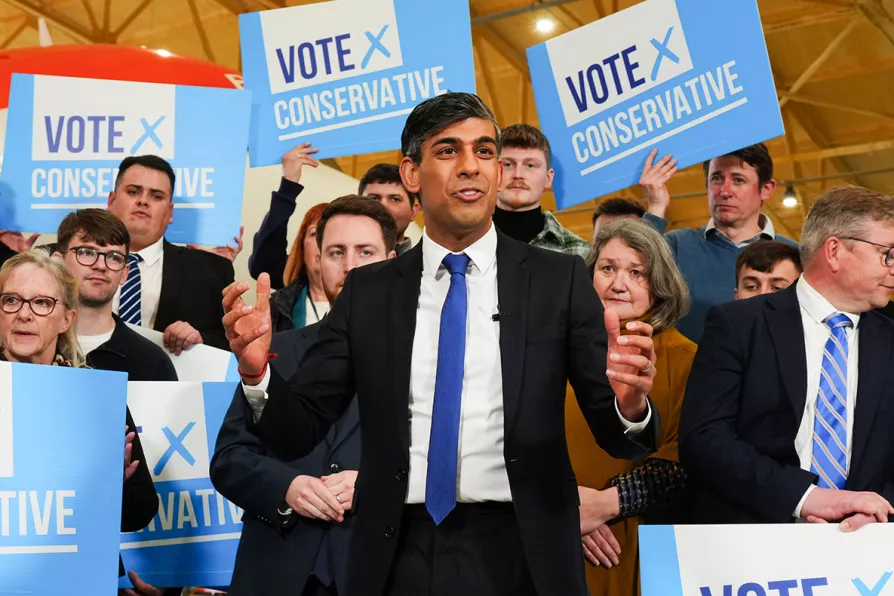This weekend, the NEU holds a special conference to debate changing its approach to organising teaching assistants, which a 2017 TUC agreement forbids. General secretary DANIEL KEBEDE outlines the choices before delegates

 Prime Minister Rishi Sunak in Teesside celebrating with Lord Ben Houchen following his re-election as Tees Valley Mayor, May 3, 2024
Prime Minister Rishi Sunak in Teesside celebrating with Lord Ben Houchen following his re-election as Tees Valley Mayor, May 3, 2024
THE Tory Party is clearly in desperate straits heading into the general election. That has led it into a situation where it is now promoting security and defence as its major campaigning issues.
In a recent speech, Rishi Sunak effectively launched the long general election campaign with a series of wild claims and promises on military spending and state security. There is a right way and a wrong way to respond to these claims.
Every school pupil knows the saying that “patriotism is the last refuge of a scoundrel.” But we should understand the power of this type of messaging. Of course, there is no mileage in chasing the vote of the jingoists, xenophobes and outright racists. Labour is always likely to come second-best (or worse) in the contest for their votes. But there is a reason that politicians in trouble so often reach for the flag and the defence budget when they are in difficulties.

The 2025 Budget shores up the PM’s political position with headline-grabbing welfare U-turns, but with no improvements on offer to declining public services or living standards, writes MICHAEL BURKE

The BBC and OBR claim that failing to cut disability benefits could ‘destabilise the economy’ while ignoring the spendthrift approach to tens of billions on military spending that really spirals out of control, argues DIANE ABBOTT MP

Europe is acquiescing in Trump’s manoeuvrings — where Europe takes over the US forever war in Ukraine while Washington gets ready for a future fight with China. And it’s working people who will be left paying the price, says DIANE ABBOTT MP











